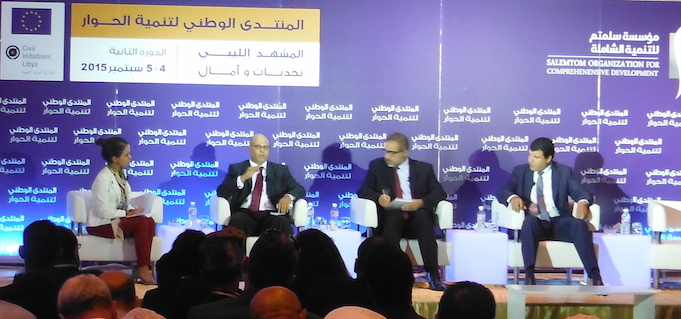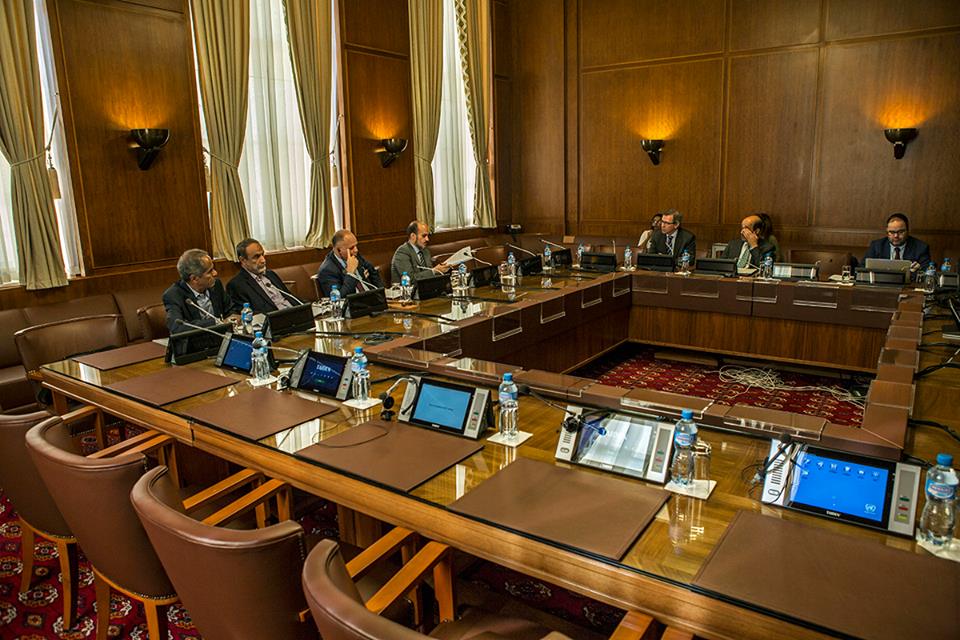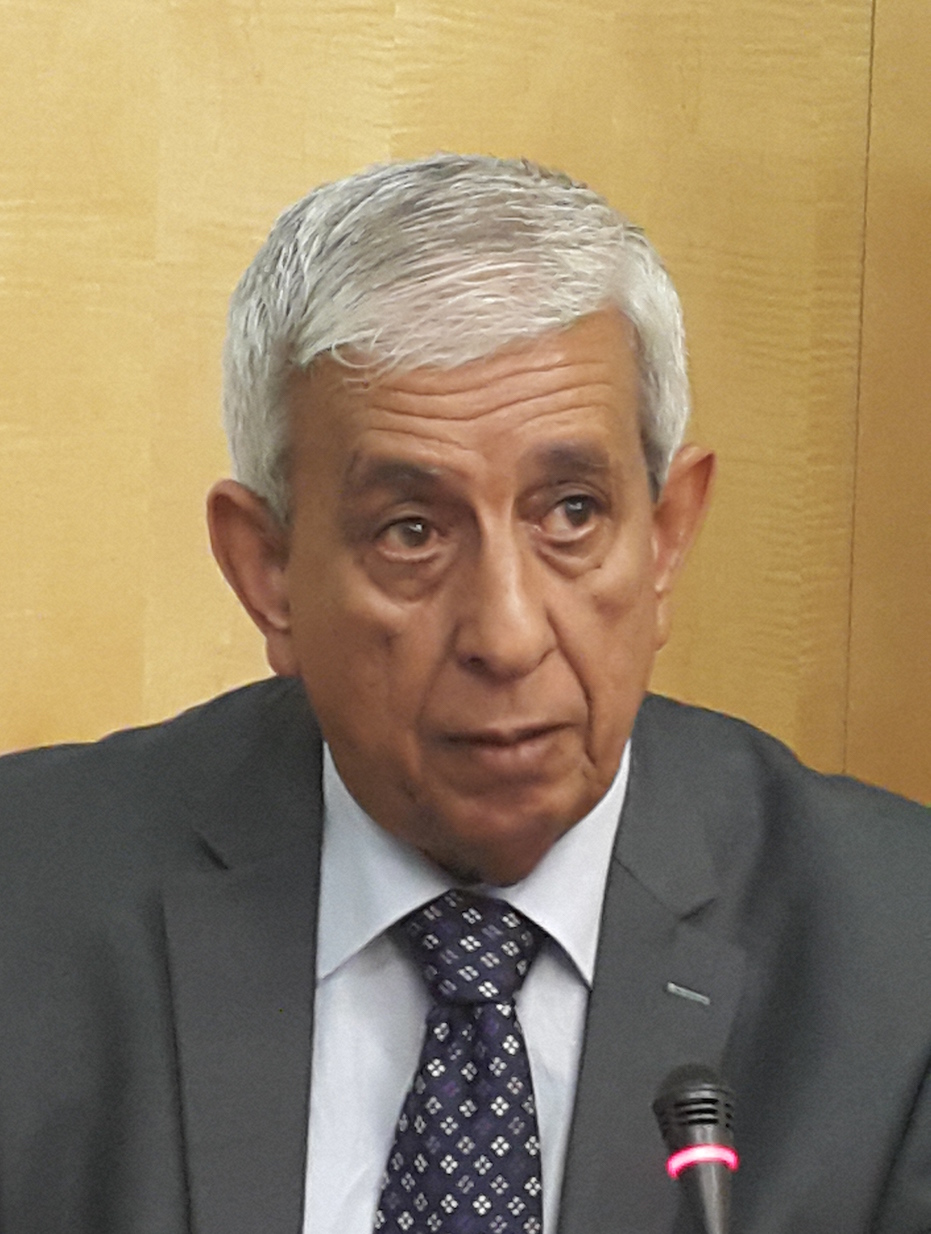By Libya Herald staff.

Tunis, 4 September 2015:
The arrival of foreign forces to ensure stability in Tripoli for a government of national . . .[restrict]accord (GNA) to operate there would backfire, speakers at a major conference on dialogue in Libya said today. Nor could there be a Green Zone in the capital, as in Baghdad. It would not work, they said. However, the militias had to be removed. A GNA would not work as long as there were heavy armed militias in the capital, former interior minister Ashour Shuwail told participants.
The two-day National Dialogue Development Forum which opened this afternoon in Tunis, has drawn what is seen as the largest number of key Libyan figures to such an event since Libya split in two politically last year.
Speakers include several of those who have been nominated for the posts for prime minister and the two deputy premiers, among them Libyan ambassador to the UAE Aref Nayad, education minister Fathi Majbri, and IT professor Otman Basir.
Former UN ambassador Ahmed Shalgam and HoR member Abubakr Buera are due to speak tomorrow, Saturday. Other speakers today were leading Misrata businessman Mohamed El Muntasser, Ashour Shuwail, ambassador to Bahrain Fawzi Abdulaal, security expert Amal Obeidi and Interior Ministry security adviser Al-Aref Al-Khoja.
With so many prominent Libyans attending the event and over half the prime ministerial candidates among the speakers, it is being seen as something of a “beauty contest” prior to the announcement of the premiership appointment, supposedly next week. It was also suggested that a large portion of future GNA ministers were present either as speakers or attendees.
In his speech, Majbri said that there had to be a political will among Libyans for peace and collaboration. At present there was an absence of national unity. Everyone was speaking from their point of view, not taking into account the views of others. More specifically he said that the new government would have to involve all factions, move to end corruption, create strong military and strong institutions and create a new prosperous Libya. A key element for getting Libya back to work would be changing the Libyan thinking that they are entitled to salary. Libyans need to start working for themselves, he said.
Terrorism was the main issue that needed to be tackled, said Nayed, and the GNA must not work with anyone opposed to democracy. But Libya also was in a critical economic situation. Calling for a government that was efficient and practical, he said it would have to focus on economic change alongside dealing with security.
The same point was made by Muntasser and Obeidi.
Both Muntasser and Nayed said that subsidies had to be scrapped, although Nayed believed it would have to be done gradually. Both also said that the government’s massive salary spending had to be reduced. Libya could not afford it. But reductions would have to come in terms of finding people on the state payroll other jobs. Other speakers insisted that salaries as a whole across Libya had to increase.
One of the current problems, Nayed added, was the belief among certain people that they had “revolutionary legitimacy” and that it gave them the right to do anything they wanted. “We have to avoid revolutionary legitimacy”, he stressed. The new government had to be a government for all Libyans, regardless of whom they backed during the 2011 revolution.
On the issue of ensuring security once the GNA is established, and whether it could operate safely in Tripoli, there was guarded optimism. First though, a government had to be established, speakers said. Without it there was no chance of security.
While there was near unanimity that the presence of foreign forces on the ground in the capital would be disastrous, there was some disagreement about the struggle in Benghazi. Former Interior Minister Ashour Shuwail, who said that there had been methodical targeting of the security system in the city in order to destroy it, later told the Libya Herald that a UN force consisting of troops from Arab and Muslim countries might be needed to deal with the situation in Libya’s second city where street fighting necessitated specially trained forces. [/restrict]









